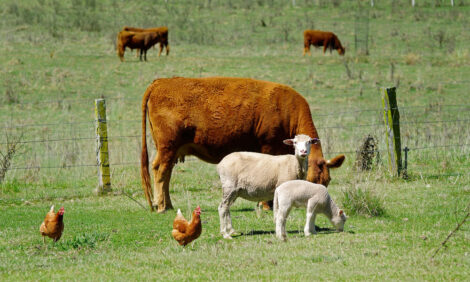



K-State Poultry Expert Talks Turkey
US - The type of turkey that is on sale at your local grocery store today is not the turkey your grandma used to buy -- but her "old-fashioned" bird may be making a comeback, according to a Kansas State University poultry researcher.K-State's Scott Beyer, an associate professor of animal sciences and industry who has a research interest in heritage turkeys, says the turkey business has turned commercial because of the high demand for turkeys each year. Beyer said that has left many of the original breeds of turkeys, or heritage turkeys, close to extinction.
But Beyer thinks heritage turkeys might be making a comeback, perhaps because of concerns about animal welfare and the treatment the animals receive during the breeding process. Good Shepard Turkey Ranch in Lindsborg, one of the largest heritage farms in the nation, has donated heritage turkeys to K-State research to find out ways to more effectively and less expensively produce heritage birds.
According to Beyer:
- In the United States, there are 300 or fewer small-scale heritage turkey farms.
- Heritage farms are breeding traditional turkeys that have been here for centuries, including Beltsville Small White, Black, Jersey Buff, Narragansett, Slate, Standard Bronze, White Holland and White Midget turkeys. These breeds make up less than 1 percent of the 265 million turkeys produced in America last year.
- Heritage farmers lost their market share with the development of the heavier-breasted turkeys found in supermarkets today.
- Many of the heritage breeders focus on showing their turkeys at county and state fairs, while still fewer run small businesses that focus on growing Thanksgiving turkeys.
- Heritage turkeys are not easy to come by and are mainly sold in specialty -- or natural -- food stores.
- Heritage turkeys can be more expensive to produce. Because the birds are fully free range, they can fly and tear up pastures. They eat three to four times more feed than commercial turkeys; they do not receive any growth promoters in their feed; and they produce fewer offspring because they mate naturally, compared to most commercial breeds of turkeys which are produced via artificial insemination.
- Heritage turkeys can cost more per pound, sometimes up to $20 per pound for the really nice breeds, while the commercial varieties are often less than a $1 per pound -- especially around the Thanksgiving and Christmas holidays.











